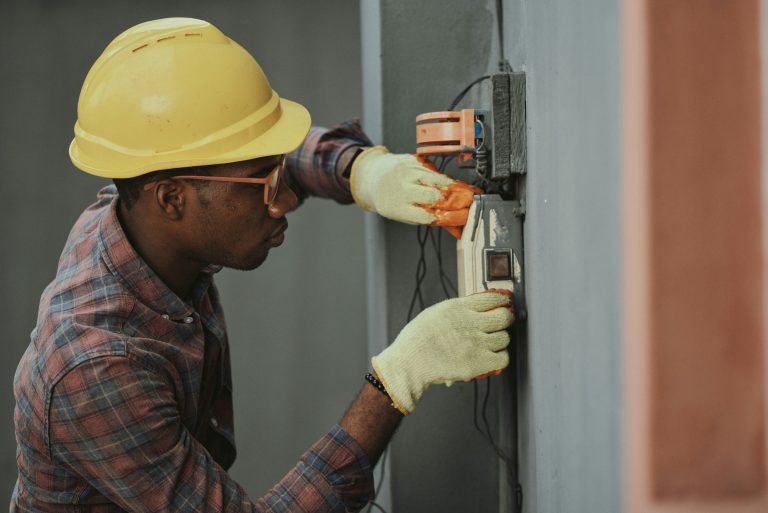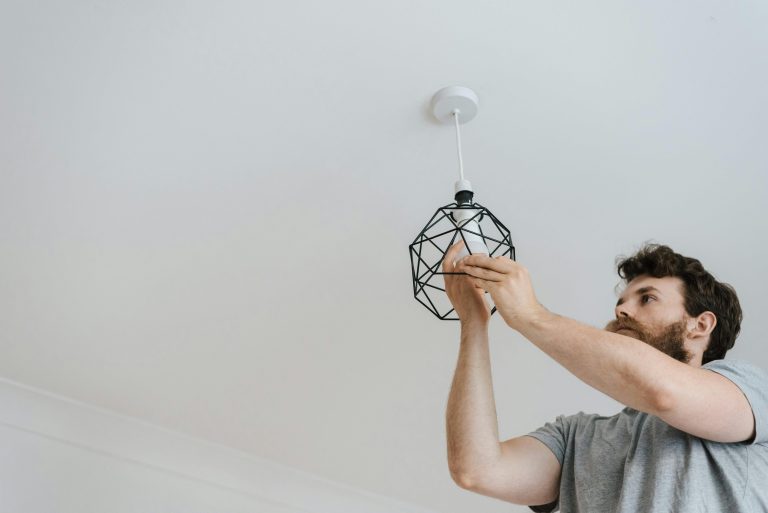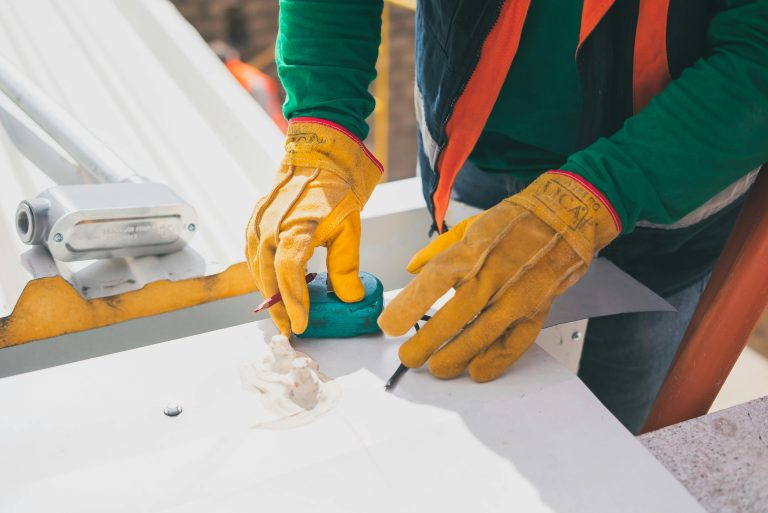Guide to Residential Electrical Installations Liberty Lake, WA: Outlets, Switches, and Panels
Embarking on the journey towards a secure and functional home begins with a comprehensive understanding of electrical installations.
As a residential electrician in Liberty Lake, WA, I have been part of the trusted J&J Electrical Inc. team since 2016.
With license number JJELEEI841B6, we have garnered a reputation for reliability and superior craftsmanship, boasting over 65 years of combined experience.
Our mission is clear: to utilize top-notch materials, employ cutting-edge techniques, and provide tailored solutions that meet the diverse needs of our clients in the Liberty Lake community and beyond, all while delivering unparalleled value and service.
Understanding Electrical Installations

Definition of Electrical Installation
An electrical installation refers to the complex network of electrical components and systems that are installed to provide electricity in a home, building, or structure. It encompasses the wiring, conduits, outlets, switches, fixtures, and panels that safely manage and distribute electrical power.
Importance of Electrical Installations
The importance of electrical installations cannot be overstated.
They are integral to the functioning of modern society, enabling the operation of everything from lighting and heating to communication and entertainment systems.
Proper installation is crucial for the safety and efficiency of these systems and for preventing electrical accidents.
Basic Components of Electrical Installations
The basic components of electrical installations include conductors (wires and cables), which transport electricity; fittings and devices, such as outlets and switches, that connect appliances and equipment to the power source; and electrical panels, which distribute and protect the electrical circuits in a building.
Residential Electricity: Basics and Safety Concerns

Basic Terminologies in Electricity
Understanding the following terminologies is vital:
- Voltage (V) is the pressure from an electrical circuit’s power source. Amperage (A) or current is the volume of electricity flowing through the wires.
- Wattage (W) is the rate of energy transfer.
- Resistance (Ω) measures how much the current flow is opposed within a circuit.
Understanding Electrical Safety
Electrical safety is paramount in any residential installation. It includes knowledge of how to prevent electrical fires, avoid electrocution, and ensure that all electrical systems function properly without harming occupants or property.
The Role of Safety Devices in Electrical Installations
Safety devices such as circuit breakers, GFCI, and AFCI outlets prevent electrical hazards.
Circuit breakers protect circuits from overloads, GFCIs help prevent electric shock, especially in wet areas, and AFCIs protect against electrical fires due to arcing faults.
Types of Electrical Outlets

Standard Outlets
Standard outlets are the most common type found in homes. They usually have two or three plug receptacles and are rated for 120 volts in North America.
Ground Fault Circuit Interrupter (GFCI) Outlets
GFCI outlets are designed to reduce power if an imbalance between the incoming and outgoing current occurs, significantly reducing the risk of shock and electrocution.
Arc Fault Circuit Interrupter (AFCI) Outlets
AFCI outlets protect against fires by detecting hazardous arcing conditions and interrupting the circuit to prevent the ignition of electrical fires.
USB Outlets
USB outlets are becoming increasingly popular as they provide direct USB ports for charging electronic devices without needing an adapter.
Smart Outlets
Smart outlets control connected appliances via smartphone applications, enabling features such as scheduling and remote access.
Aspects to Consider when Choosing an Outlet
When choosing an outlet, consider the electrical load, location (indoors, outdoors, or in damp environments), USB charging, smart capabilities, and whether GFCI or AFCI protection is necessary for the intended use.
Installing Electrical Outlets

Safety Precautions Before Installation
Before installing an outlet, cut off the power to the circuit and verify with a voltage tester. Wear protective gear and use insulated tools to minimize the risk of accidents.
Detailed Guide to Outlet Installation
To install an outlet, prepare the box where the outlet will be housed and connect the wires according to the outlet’s terminal configuration. Secure the outlet to the box and the faceplate to the outlet.
Possible Problems Encountered During Installation
Common problems during installation include incorrect wiring, loose connections, and tripped circuit breakers, which may result from improper handling or faulty components.
When to Engage a Professional in Outlet Installation
If you are unsure about any aspects of electrical work or if complex issues arise, such as circuit overloads or an unidentified power source, it is essential to engage a professional electrician.
Understanding Light Switches
Types of Light Switches
Light switches come in various types, including:
- Single-pole
- Three-way
- Four-way
- Dimmer, and smart switches
Each is suited for different lighting arrangements and preferences.
The Technology Behind Light Switches
The technology behind light switches involves the operation of circuits. Depending on the design, switches can make or break the circuit, thus controlling the flow of electrical current to lighting fixtures.
The Function of Different Light Switches
Different switches serve unique functions. Single-pole switches control lights from one location, while three-way and four-way switches allow for control from multiple locations.
Dimmers adjust light intensity, and smart switches offer advanced features like scheduling and remote activation.
Installing Light Switches
Safety Precautions Before Installation
Always turn off the power and confirm with a voltage tester before starting. Using proper tools and following the manufacturer’s instructions will ensure safety during installation.
Steps to Installing Various Light Switches
When installing a light switch, identify the type of switch, connect wires to the corresponding terminals, secure the switch to the wall box, and attach the switch plate.
Probable Challenges During Light Switch Installations
Issues may include miswiring, not grounding the switch properly, or installing a switch that is incompatible with the lighting system.
When to Involve a Professional in Light Switch Installations
For specialized switches like dimmers or smart switches, or when working with multi-way switches, seeking the assistance of a professional is often advisable to ensure a safe and correct installation.
Electrical Panels: An Overview

Definition and Function of an Electrical Panel
An electrical panel, also known as a breaker box or distribution board, is a central point that houses circuit breakers or fuses. It controls the distribution of electricity throughout the property.
Types of Electrical Panels
There are various types of electrical panels, such as:
- Main breaker panels
- Main lug panels
- Sub-panels and transfer switches for generators.
The Role of an Electrical Panel in a Home
The electrical panel plays a critical role in a home by providing a central location to control and protect the electrical system with various circuits identified and accessible.
Installing Electrical Panels
Safety Measures Before the Process
Installing an electrical panel should always begin with cutting off the main power supply. Following code regulations and using proper safety equipment during the process is crucial.
Step-by-Step Guide to Electrical Panel Installation
Installing an electrical panel involves:
- Mounting the panel.
- Connecting the main power wires.
- Installing the circuit breakers.
- Connecting branch circuits.
Detailed instructions should be followed according to the specific panel being installed.
Potential Difficulties in the Installation Process
Potential difficulties include incorrect sizing of the panel for the home’s needs, improper grounding, and adhering to local electrical codes, which can be complex.
Knowing When to Engage an Expert for Installation
Due to the potential risks and intricacies involved in electrical panel installation, it is often a task best left to a licensed professional who can ensure safety and compliance with regulations.
Routine Maintenance of Electrical Installations

Inspection of Outlets and Switches
Regular inspections of outlets and switches can detect issues such as loose connections, damaged components, and wear that could pose a safety risk.
Servicing Electrical Panels
Electrical panels should be inspected periodically for signs of damage and corrosion, ensuring connections remain tight and secure.
The Necessity of Routine Checks and Maintenance
Routine checks and maintenance prolong the life of electrical systems and reduce the risks of failure and accidents. It is essential for the ongoing safety and efficiency of a home’s electrical system.
Hiring the Right Professionals for Electrical Installations in Liberty Lake, WA

Traits to Look Out for in an Electrical Contractor
A reputable electrical contractor should be licensed, have significant experience, use quality materials, and continually update their skills. They should also understand the client’s needs and offer innovative solutions.
Importance of Licensing and Certification
Licensing and certification ensure that an electrical contractor is qualified and knowledgeable about the latest codes and standards. It offers assurance that the contractor can execute electrical work safely and reliably.
Questions to Ask a Potential Contractor
When hiring an electrical contractor, inquire about their experience with your specific needs, their approach to safety, the quality of materials they use, and references regarding their previous work.
Proper vetting will help ensure you engage a professional who delivers quality service.
Need Professional Electricians in Liberty Lake, WA?
Contact J&J Electrical Inc. today for expert guidance and superior residential electrical services. Let us ensure your safety and convenience with our top-notch installations and comprehensive solutions. Get in touch now!
The post Guide to Residential Electrical Installations Liberty Lake, WA: Outlets, Switches, and Panels first appeared on J&J Electrical Inc..Original post here: Guide to Residential Electrical Installations Liberty Lake, WA: Outlets, Switches, and Panels
Comments
Post a Comment